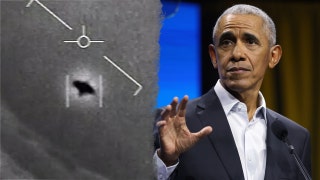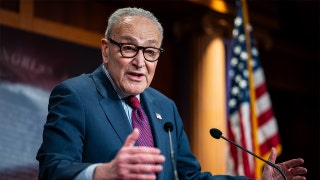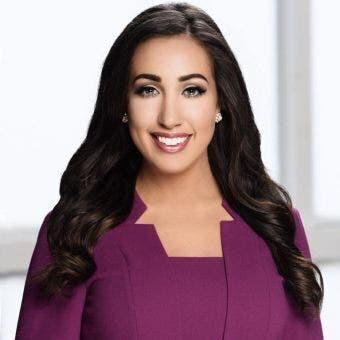Former Parler interim CEO on Trump suing Big Tech companies over censorship
Former Parler interim CEO Mark Meckler argues that former President Donald Trump’s lawsuit against the three tech companies that removed him from their platforms after the Jan. 6 attack on the Capitol by a mob of his supporters ‘could break new ground.’
Parler's former interim CEO Mark Meckler argued on "Fox & Friends First" on Thursday that former President Donald Trump’s lawsuit against Big Tech companies "could break new ground."
Meckler made the comment the day after Trump announced that he will lead a lawsuit over alleged censorship against Twitter, Facebook and Google, which are the three tech companies that removed him from their platforms after the Jan. 6 attack on the Capitol by a mob of his supporters.
The lawsuit will be a class-action filing, with Trump as the lead plaintiff, claiming that he's been censored by the companies.
"There is no better evidence that Big Tech is out of control than the fact that they banned the sitting president of the United States earlier this year," Trump said speaking from his golf club in Bedminster, New Jersey.
"If they can do it to me, they can do it to anyone," he added.
Twitter, YouTube and Facebook each barred Trump over his claims that the presidential election was stolen, alleging that he contributed to the violence at the Capitol on Jan. 6. YouTube is owned by Google.
"After close review of recent Tweets from the @realDonaldTrump account and the context around them – specifically how they are being received and interpreted on and off Twitter – we have permanently suspended the account due to the risk of further incitement of violence," Twitter wrote in a blog post about its decision.
But Republicans and Trump himself have maintained that these companies are unfairly censoring conservatives, pointing to international dictators who still can post on Twitter.
TRUMP TO SUE FACEBOOK, TWITTER, GOOGLE OVER ALLEGED CENSORSHIP, SAYS THEY'VE ‘CEASED TO BE PRIVATE’
"While the social media companies are officially private entities, in recent years they have ceased to be private with the enactment and their historical use of Section 230, which profoundly protects them from liability," Trump said. "It is in effect a massive government subsidy, these companies have been co-opted, coerced and weaponized by government actors to become the enforcers of illegal, unconstitutional censorship."
Trump called social media companies "the de facto censorship arm of the U.S. government."
Section 230 of the Communications Decency Act states that "No provider or user of an interactive computer service shall be treated as the publisher or speaker of any information provided by another information content provider."
It has been pivotal in the rise of today's social media by allowing not only Internet service providers but also Twitter, Facebook, YouTube and others to be shielded from liability from content posted on their platforms by third parties in most cases.
Meckler said that he agrees with Trump "that the existing law says that the First Amendment protections do not apply in censorship by private companies."
He then pointed to "a theory budding in academic communities," in which "large, all-encompassing social media companies, act as essentially a state actor when they censor people."
Meckler went on to explain that the companies "essentially have the same power as the government" and are "sometimes influenced or pressured by the government to do these things."
"And so theoretically, you could apply what we call the ‘state actor theory’ to them and impose First Amendment restrictions," he continued, noting that "it’s a developing area of the law and it is possible that this could break new ground."
Meckler said that "originally the First Amendment was designed to protect freedom of speech in the public sphere" and explained that then the "public sphere literally meant the soapbox," which meant "standing on a street corner, talking about whatever you want [and] handing out pamphlets."
He then noted that in the present time "this starts to get murky," pointing out that currently the Internet is used as a forum to speak publicly "and these companies control that world with an iron fist."
"So the question becomes, where is public speech and who now has First Amendment protection?" Meckler said.
"This idea of prior restraint normally applies when the government prevents somebody from speaking," he continued. "Now we’re talking about a private entity and the extension of that doctrine of freedom of speech under the First Amendment to a private person speaking on a private entity would be an extension of First Amendment protections."
CLICK HERE TO GET THE FOX NEWS APP
A spokesperson for Twitter declined to comment on Trump’s lawsuit. Representatives for Facebook and Google did not immediately respond to Fox News’ request for comment on the lawsuit and Meckler’s statements.
Fox News’ Tyler Olson, Fox Business’ Evie Fordham and The Associated Press contributed to this report.











































